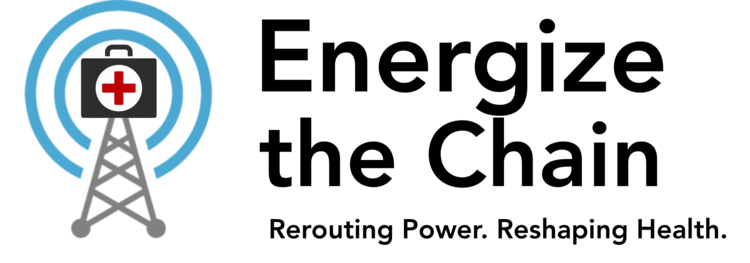EtC's Professor Harvey Rubin discusses the social and cultural aspects of Ebola epidemic response in Knowledge@Wharton, The Wharton School's online journal of business analysis.
Read MoreWhat's New?
News
Energize the Chain presents at the UN conference for multi-sectoral partnerships
Philadelphia Inquirer Front Page Article on ETC →
One of Morse's next calls was to another friend, this one a star in the field of medicine. Harvey Rubin, an infectious-disease doctor at the University of Pennsylvania, does research on tuberculosis and the mathematical modeling of complex biological systems. His vast professional and personal network has made him a kind of human power grid. If anyone could figure out a way to deal with the mess in Haiti, Morse figured Rubin was the one. But Rubin had bad news.
Read MoreUN Meeting on Partnerships in the Vaccine Cold Chain →
Leaders and innovators in global health met April 8, 2014, at the United Nations to provide guidance about partnerships as the UN considers the next iteration of the Millennium Development Goals. This particular meeting was a side event, sponsored by the Institute for Strategic Threat Analysis and Response, to the UN Economic and Social Council’s two-day meetings on the role of partnerships.
Read More'Academics Stand Against Poverty'S Interview With ETC'S Professor Harvey Rubin →
Here’s a shocking statistic: 2.5 million children under the age of five continue to die each year from vaccine-preventable diseases. Vaccines are available, but lack of infrastructure often prevents them from reaching the remote and impoverished communities that need them most.
A new initiative pioneered by the non-profit organization Energize the Chain could hold the key to reducing this number dramatically and preventing needless deaths. The idea: use electricity from mobile phone masts to run vaccine refrigerators at sites in remote areas. ASAP spoke to the director of Energize the Chain, Dr Harvey Rubin of the University of Pennsylvania.
Read MoreEnergize the Chain at Google's First 'Hack4Good'
The Google Alumni Programs team hosted 14 hackers and 3 nonprofit organizations (Energize the Chain, WellDone, and GreatNonprofits) at the first ever Hack4Good event in Mountain View on September 14-15, 2012.
The event supported the efforts of current and former Googlers actively involved in nonprofits by creating technical solutions that will further their impact. The technical solutions will be used to keep vaccines cold in India, provide data about water wells built in Africa, and promote greater feedback and transparency for donors/volunteers across thousands of nonprofits! One organization rep told the hackers, “You definitely saved lives this weekend."
Read MoreEnergize the Chain 'Life Sciences Award' Winner for Best Innovation from a Research Institute
Article in 'New Scientist' on Energize the Chain →
Infectious disease specialist, Harvey Rubin, of the University of Pennsylvania in Philadelphia and Alice Conant, then a student at Harvey Mudd College in Claremont, California, suggested using surplus power from cellphone towers to run the refrigerators needed to keep perishable vaccines cool. Their idea is now being tried out at 10 church-run hospitals across Zimbabwe, with the backing of Econet Wireless, a cellphone provider based in Johannesburg, South Africa.
Read More'Econet Vaccine Centers' Enters Partnership with Energize the Chain
Energize the Chain and Econet Wireless have now publicly joined and showcase the project on Econet's Development Foundation page.
Read More"To Help Poor Countries, Simpler Health Treatments not Dependent on Electricity" →
"Harvey Rubin, a professor at Penn's medical school, also was struck by a chance idea that could help the developing world.
It started when actor David Morse, a friend of Rubin's, e-mailed him this year to ask about the problems in getting medical care to people in earthquake-ravaged Haiti. Among other issues, Rubin explained how vaccines had to be kept cold to remain effective."
Read More
